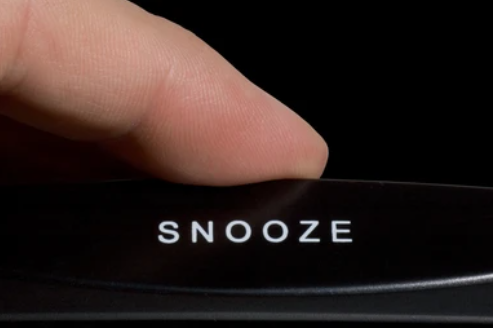Snoozing, or using intermittent alarms to get in a few more
minutes of sleep in the morning, may be beneficial for some people.

In a study of over 1700 adults published in the Journal
of Sleep Research, around 70 per cent admitting to hitting the snooze
button at least sometimes. The average snooze time was around two minutes.
A second study of people who regularly snoozed for around 30
minutes found that it either improved, or did not affect, performance on
cognitive tests. It also did not affect stress hormone levels, morning
sleepiness, mood or overnight sleep.
The authors say the finding suggest there is no reason to stop
snoozing in the morning if you enjoy it, and may even help those with morning
drowsiness to be slightly more awake once they get up.